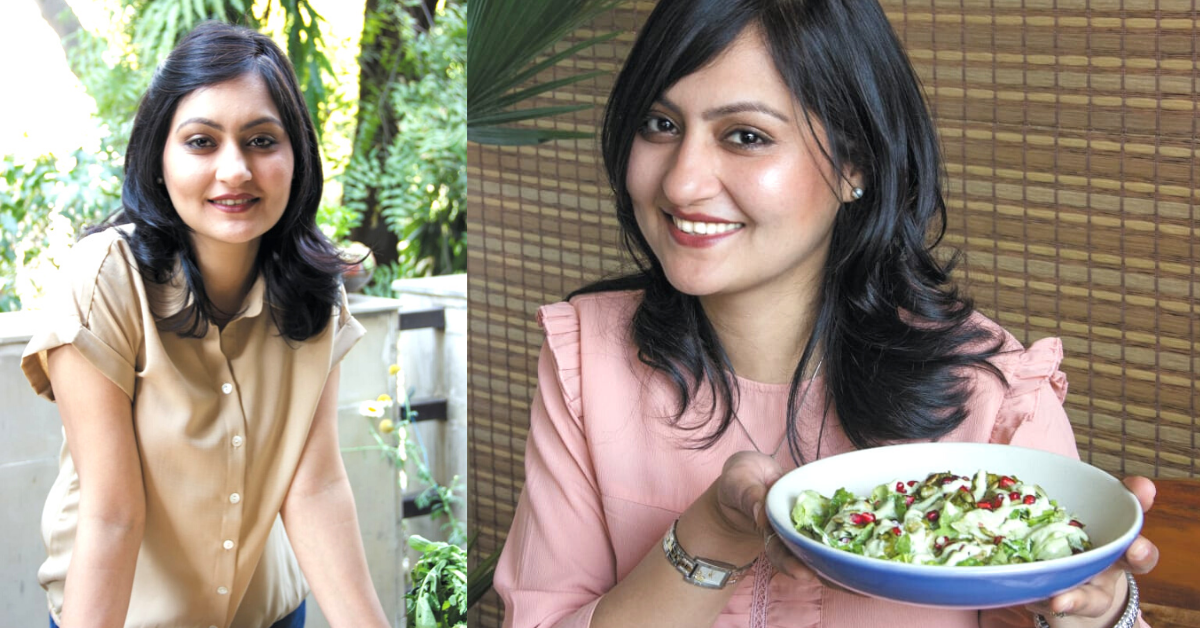What did you eat for breakfast today?
My mother and I agree to disagree on many subjects, and the pros and cons of eating a good hearty breakfast is one of them. After yet another heated discussion on this topic, we decided that the best resolution would be to get an expert’s opinion on the matter.
Use these gluten-free rolled oats to make granola, overnight oats or simply, cook them in milk for a super healthy and filling breakfast!
So, here is Dr Archana Batra, a Dietitian and Certified Diabetes Educator based in Gurugram who helps put this argument to rest once and for all.
What is breakfast?
Derived from the phrase ‘breaking the fast,’ breakfast literally means the first meal of the day. Given that during our sleep at night, the body does not get any food, it remains in a state of fasting.
Most of us believe that it is crucial to eat a good breakfast because it helps the body and mind replenish itself after a period of rest. But is that true?
“We often hear that we should eat breakfast like a king and dine like a pauper. But research now is questioning this. With the rising popularity of fasting diets and the claims that these fasting diets make, our old theory of eating a good breakfast seems to be under a lot of scrutiny.”
What is Dr Batra’s view?

“I always advocate the importance of eating a good and wholesome breakfast. One must never skip it,” she says. Explaining further, she mentions the following points:
1. Skipping breakfast will lead to a decrease in metabolism
Dr Batra says, “Eating a good breakfast helps increase the metabolism. It’s often thought that if you don’t eat breakfast and fast for long hours, your body goes into a phase of scarcity and starts depositing more fats. In fact, many studies say that if you have some food within half an hour of waking up, it kick-starts the metabolism and even aids in weight loss.”
2. Skipping breakfast will lead you to over-eat
Dr Batra explains, “If you have a hearty and nutritious breakfast the chances of overeating later in the day are less, and again that, in turn, will help you in controlling your weight.”
Begin your day with a combination of whole grains and proteins with or without dairy. Remember that protein is really significant to keep you full for longer and avoiding cravings later during the day.
“An ideal breakfast would be stuffed paneer onion chapatti with mint chutney/curd or an egg omelette with veggies and one open sandwich or a cheela (pancake) made out of besan/moong dal along with a glass of milk,” she mentions.
If you want to a variety in our breakfast, you could also make whole-wheat pancakes with chopped fruits or grilled chicken sandwiches. Another breakfast dish very popular in the West is called overnight oats, which is made out of oats, yogurt, almond milk (or regular milk), and superfoods like chia seeds and nuts etc.
3. Skipping breakfast might lead to a spike/dip in blood sugars
“A recent research shows that those who have diabetes, even if they don’t overeat at lunch or/and dinner after skipping the first meal of the day, it causes major damages to the beta cell functions (cells that releases insulin),” says Dr Batra.
Therefore it becomes even more imperative for those who have diabetes to have a good healthy breakfast.
She goes on to say that research shows that our body uses energy at night for growth and repair. So, eating a good breakfast helps and is essential to keep the energy levels pepped up.
What about the diets that promote fasting, especially the ones that encourage Intermittent Fasting (IF)?
Explaining this, Dr Batra says, “Carbs are broken down into glucose, which is then utilised for energy. If we don’t use all of this glucose (a form of sugar), it is stored within the body in the form of fats. Insulin (a hormone that the pancreas makes) ensures sugars enter cells to be utilised as energy and also pushes sugar into our fats cells and keeps it there. If we give long gaps between meals, as in intermittent fasting, our insulin levels go down, and our fat cells release their stored sugar to be used as energy. So, basically, we do lose weight.”
So, does this mean that skipping breakfast is a good idea?
The answer is NO.
Dr Batra clarifies, “If you are skipping your breakfast and have had an early dinner, that would still be alright for the body. However, a late dinner combined with no breakfast isn’t a good idea as it can lead to gastric issues leading to regurgitation and acid reflux and can even lead to even more weight gain.”
Dr Batra emphatically says that those who have diabetes or have a predisposition to developing diabetes must not skip breakfast at all.
In conclusion, she says, “I have personally seen many clients developing very high cholesterol levels after having followed these kinds of fasting based diets. The bottom line is that if you want to try an intermittent fasting diet / or any other fasting diet, approach it with caution and mindfulness.”
Also Read: Losing 30-50 Kgs of Weight in a Healthy Manner? This Duo Shows It’s Possible!
(Edited by Gayatri Mishra)
Like this story? Or have something to share?
Write to us: contact@thebetterindia.com
Connect with us on Facebook and Twitter.
If you found our stories insightful, informative, or even just enjoyable, we invite you to consider making a voluntary payment to support the work we do at The Better India. Your contribution helps us continue producing quality content that educates, inspires, and drives positive change.
Choose one of the payment options below for your contribution-
By paying for the stories you value, you directly contribute to sustaining our efforts focused on making a difference in the world. Together, let's ensure that impactful stories continue to be told and shared, enriching lives and communities alike.
Thank you for your support. Here are some frequently asked questions you might find helpful to know why you are contributing?

